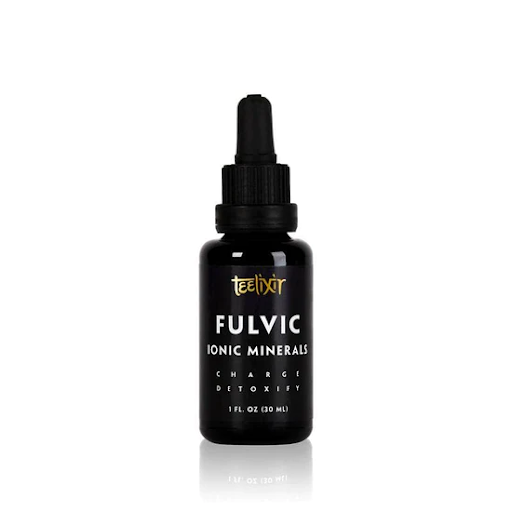Fulvic acid refers to a collection of compounds produced as a byproduct of the decomposition of plants and animals. In addition to being found in peat and streams, and lakes, it is also present in the humus (organic matter) that is located in the soil.
Although fulvic acid is used to treat various illnesses, including allergies, eczema (atopic dermatitis), cancer, Alzheimer’s disease, and others, there is insufficient evidence to support this usage from a scientific perspective.
How does it work?
It’s possible that fulvic minerals might inhibit the body’s responses responsible for allergy symptoms. It is also possible to halt the progression of some brain illnesses, such as Alzheimer’s disease, by preventing specific processes from occurring. In addition, there is some evidence that fulvic acid benefits can decrease edema and either stop or halt cancer progression.
There is not Enough Evidence to Support this.
Uses & Effectiveness?
- Hay fever. The preliminary findings of specific studies suggest that consuming fulvic acid orally for seven days may help lessen allergy symptoms in those sensitive to pollen.
- Eczema (atopic dermatitis). Initial studies suggest that rubbing 5% fulvic acid into the skin twice a day for four weeks may help alleviate some of the symptoms associated with eczema.
- Alzheimer disease.
- Cancer.
- Fatigue.
- Toxic effects of lead
- A disease that affects the airways.
- Additional prerequisites.
More proof is required to assign a rating to fulvic acid for specific applications.
Special Precautions and Warnings
Fulvic acid is considered POSSIBLY SAFE when taken by mouth for up to seven days. After taking fulvic acid, some people experience side effects such as a headache or a sore throat.
It has been determined that when applied to the skin, fulvic acid is POSSIBLY SAFE for usage for up to four weeks. Pregnancy and the act of nursing a baby: There is not enough trustworthy information available to determine whether or not fulvic acid may be used safely during pregnancy or while breastfeeding. To be on the safe side, you should avoid using it.
Diseases of the immune system are caused by the body attacking itself. Fulvic acid may make the immune system more active. Therefore, it may worsen some autoimmune disorders, such as multiple sclerosis, systemic lupus erythematosus (SLE), and rheumatoid arthritis (RA). People suffering from these illnesses must use extreme caution or completely abstain from fulvic acid.
Illness of the Kashin-Beck Bone There is evidence to suggest that fulvic acid found in drinking water may raise the likelihood of developing disease of the Kashin-Beck bone. It is hypothesized that the danger is most significant in areas where individuals do not consume an adequate amount of foods containing selenium.
Dosing
The optimum dosage of fulvic acid is determined by several criteria, including the user’s age, current state of health, and several other situations. There is insufficient scientific knowledge available to define a suitable dosage range for fulvic acid (in children or adults). It is vital to remember that natural products are not always guaranteed to be safe and that doses can sometimes be very significant. Before using, ensure that you have read and understood all appropriate directions on product labels, and check in with your pharmacist, doctor, or another qualified healthcare expert.
Should you use a supplement that contains fulvic acid?
It is too soon to know if fulvic acid will be helpful for the ailment you are trying to cure, so we won’t speculate on its potential effects. It is in your best interest to steer clear of fulvic acid supplements until Western medicine completes the necessary scientific study and clinical trials involving humans. Instead, you should make it a point to keep up with the latest research and inquire with your primary care physician or a functional medicine expert as to whether or not there are any alternative therapies or supplements that might perform comparably.





